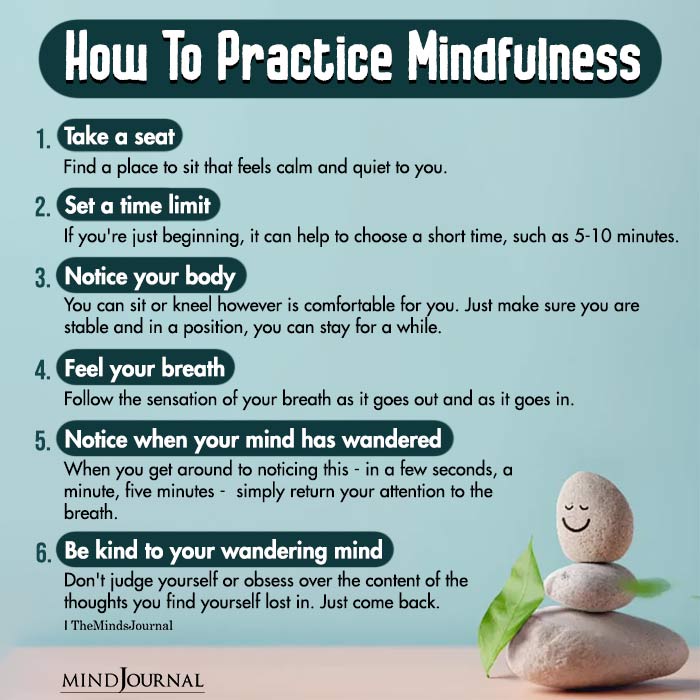We all know life can really test us sometimes, and it feels like a never-ending roller-coaster ride that’s all about deadlines, bills, responsibilities and unexpected curveballs. It’s easy to give into the stress of it all and lose our s***, but that doesn’t help, does it? Today we are going to talk about a few habits of stress-resistant minds and how you can be one of them.
Becoming the Zen master of your own mind is sometimes easier said than done, however, having a calm mind is one of the most underrated superpowers there is. People with stress resistant minds know that high levels of anxiety and reactivity will not help them deal with tricky situations.
Trying to build a resilient mindset is one of the best things you can do for yourself and your mental peace. So, are you ready to know the habits of stress-resistant minds? Let’s get started.
Related: The 3 Methods Of Mastering The Mind
8 Formidable Habits Of Stress-Resistant Minds
1. Make self-care a priority, and take care of your mind and body.
Put yourself first and don’t feel ashamed of doing that. One of the major habits of stress-resistant minds is that they prioritize themselves and what gives them peace. If you want to build a resilient mindset, make time for self-care.
Looking after both your mind and body lays the foundation for bouncing back from hard times. Find things that make you happy and help you relax. It might be working out, doing yoga or going for runs, or you might like to paint, read or dance – do whatever makes the feel-good chemicals in your brain flow.
Also make sure you’re sleeping enough and eating right. A healthy diet and rest can prep your mind and body to manage stress way better.

2. Be okay with not knowing what’s next.
Life doesn’t always go as planned – that’s just how life is. But getting comfortable with not knowing what will happen next can actually help you feel less stressed, but you need to have the mental fortitude to understand this truth.
Getting used to uncertainty means letting go of any set ideas you have about what might come next and whether those things are going to be good or bad for you. If you’re constantly thinking about what’s going to happen in the future, you’re letting go of your present.
This can also take a toll on your body because stressing out about the future makes your body secrete more cortisol than normal, which is not good for your body and mind. People with stress-resistant minds know that there’s no point obsessing about the future; when it comes and whatever happens, they’ll take care of it.
3. Spend time in nature to feel better.
This is one of the most underrated habits of stress-resistant minds. Spending time in nature can really lower your stress and make you healthier in the long run. Being in nature is actually one of the easiest ways to chill out.
When you spend some time in greenery, you will notice that you automatically feel calmer and more attentive, and this can help you heal yourself from all constant stimulation and stress you experience on a daily basis.
Related: The 10 Commandments Of Resilience
4. Practice mindfulness, and stay present in the moment.
The power of mindfulness is that it’s incredible at knocking out stress. It helps you cultivate the habit of living in the now and paying attention to your thoughts, feelings, and what you sense around you.
One of the best ways to build a resilient mind, this is a way to deal with thoughts and emotions without being harsh on yourself. It helps you see what makes you feel stressed out and handle it with a clear head and calm manner.
Doing things like meditating or taking deep, slow breaths is part of this. Such habits train your mind to be more peaceful and sharp.

5. Understand the power of creativity and have faith in your skills.
Creativity is a great way to handle stress and come up with new ideas when life throws problems at you. However, if you constantly have a rigid mindset, then you can get stuck in a problem very badly, be it big or small.
People with stress resistant minds are sure about what they can do. They trust themselves which makes it easier for them to face tough times. So remember, if you want to be good at handling stress, work on being more creative.
Start questioning things more. Look for what’s not immediately clear. Spend time with folks who love thinking outside the box. Learn from their different perspectives. Work on your ability to think in unique and smart ways.
6. Try not to sweat over the things you can’t change.
There will be times when things will go really, really wrong for you, but it will be up to you to decide how you want to react to it; you will have to understand the difference between what’s in your control and what’s not.
Once you understand that, put your energy into changing the things that are within your control. For example, maybe your partner had an accident and they are completely dependent on you to take care of them. It’s stressful for most people to handle such a situation.
However, the best thing to do is accept how things are, take charge where you can, and forget about the stuff that’s beyond your ability. Yes, your partner had an accident and that’s something you can’t control, but what you can control is how you can help them recuperate and get better.
Related: 6 Ways To Build Emotional Resilience
7. Work on having a compassionate and kind mind.
If you want to build a resilient mind, then you should cultivate a kind mind which includes self-acceptance, self-compassion and self-forgiveness. Instead of feeding your inner critic, try to adopt a learning mindset.
This can help you accept things for what they are without being hard on yourself, which will again give you the wisdom to not repeat the same mistake again. Practice self-compassion for your younger self who did their best with what they had at the time.
You can also achieve self-forgiveness, if you view the tough situations in your life as your greatest teachers and realize every one of those situations has made you the person you are today.

8. Learn to challenge yourself and embrace discomfort.
One of the most important habits of stress-resistant minds is this, for sure. The more you challenge yourself and your comfort zone, the more resilient you will be in the long run. The more comfortable you will be with discomfort, the stronger you will be as a person.
It’s actually very easy to hold onto your comfort zone, because that’s what makes you feel safe, however, it will never help you grow. You will be stuck in the same place forever, and before you know it, time has run out and there’s nothing you can do to change things.
People with stress resistant minds know that comfort zone is the nemesis of self-improvement and growth, which is why they constantly challenge themselves and whole-heartedly embrace uncomfortable situations. Because they know how much all this will pay off in the end.
Trying to build a resilient mindset takes a lot of courage, self-belief, and patience; it’s not something that happens overnight. Whenever you feel like life is being too hard on you or if you feel like there’s no light at the end of the tunnel, remember these habits of stress-resistant minds.
Related: 4 Ways To Strengthen A Resilient Mindset Amidst Adversity
They might help you realize how strong you really are and there’s so much you can do to thrive. Love yourself, have faith in yourself and never for a moment think that you don’t have what it takes!









Leave a Reply
You must be logged in to post a comment.